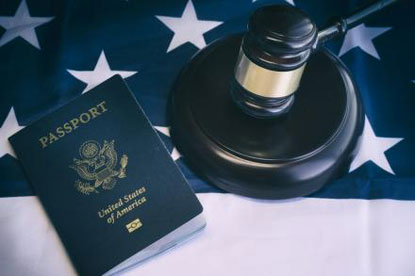In a recent appearance at the Ninth Circuit Judicial Conference in Portland, Oregon, Justice Elena Kagan of the US Supreme Court addressed the extent of Congress’s authority over the Court’s regulations. The Justice’s statements shed light on the ongoing controversy surrounding alleged ethics lapses by justices from both ideological spectrums, particularly focusing on Justice Clarence Thomas.
Responding to a query about Justice Samuel Alito’s remarks that Congress lacks the power to enforce a binding ethics code on the Supreme Court, Kagan emphasized that the legislative body’s authority has its limitations. She noted that Congress cannot wield unrestricted control, especially in ways that obstruct the justices from carrying out their duties effectively.
Despite this limitation, Kagan acknowledged that Congress possesses the prerogative to regulate certain aspects, citing historical instances of legislative intervention. Notably, lawmakers approve the Court’s budget, which encompasses matters like security arrangements. She highlighted that the Court does not operate with imperial authority and asserted that Congress has the right to deliberate on constitutional matters.
See also: Democrats in US Senate Push Legislation for Binding Ethics Code for Supreme Court
Kagan clarified that if Congress presents a proposal, the Court would have the opportunity to provide input. This nuanced stance showcases a balance between the judicial and legislative branches, underscoring the interplay between their respective functions.
Find the legal job that fits your lifestyle and career goals with BCG Attorney Search.
The discourse on Supreme Court ethics gained renewed attention following investigative reports by ProPublica. These reports highlighted alleged non-disclosure of information related to luxury vacations, real estate transactions, and educational expenses involving Justice Clarence Thomas and billionaire GOP donor Harlan Crow. These alleged ethics breaches sparked discussions about transparency and accountability within the Court.
Justice Alito’s recent statements, published in the Wall Street Journal, rejected attempts by Democrats to establish an ethics framework for the Court, particularly concerning financial disclosures and recusal practices. Alito maintained that Congress lacks the constitutional authority to regulate the Supreme Court, emphasizing this controversial viewpoint.
In contrast to Alito’s perspective, Justice Kagan’s statements reflect a recognition that ethical considerations are important within the Court. Kagan, part of the liberal wing of the Court, disclosed that the justices are deliberating on self-imposed ethics guidelines. She acknowledged the diverse opinions among the nine justices, acknowledging that they approach these matters from various standpoints.
Chief Justice John Roberts has previously asserted the Court’s commitment to upholding ethical standards and complying with judicial ethics laws. He emphasized the significance of the justices adhering to self-imposed ethical standards rather than being subject to congressional mandates. Roberts contended that such mandates would infringe upon the separation of powers enshrined in the Constitution.
In response to external pressure, the Court recently adopted a voluntary policy to enhance transparency regarding hospitality disclosures. Kagan affirmed that the Court also abides by the standard code of conduct applicable to federal judges, albeit with certain differences such as recusal practices.
Despite these efforts, progressive voices argue that the current measures are insufficient, advocating for a comprehensive and binding ethics code akin to the regulations governing lower court judges. They assert that a formalized code would bolster public confidence in the Court’s legitimacy, addressing concerns about potential biases or ethical lapses.
Don’t be a silent ninja! Let us know your thoughts in the comment section below.







































